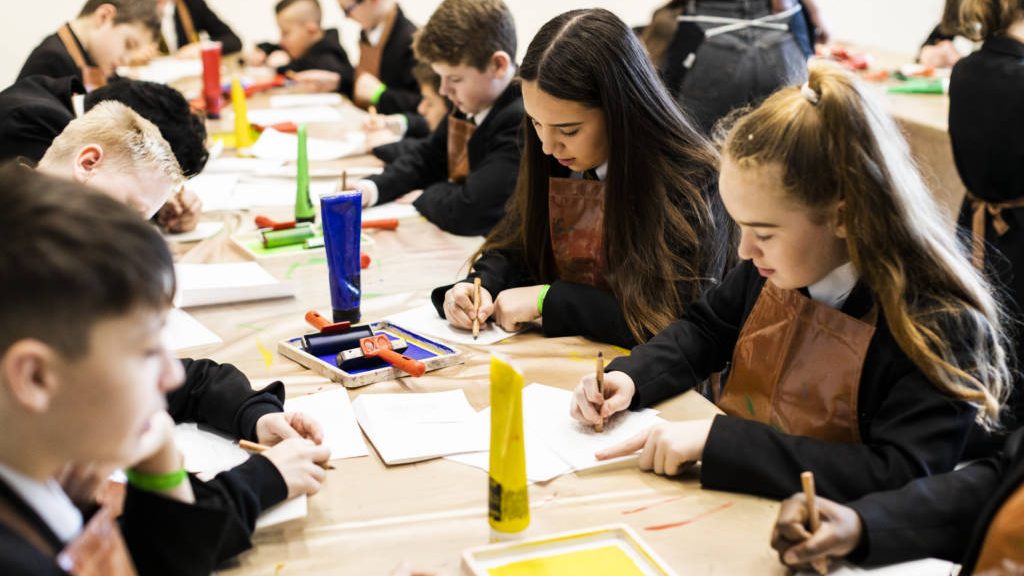
Teens living in England’s most deprived local authorities are less likely to study expressive arts subjects at schools than their counterparts in the least deprived areas – and are also less likely to experience creative and cultural extracurricular opportunities.
A report from the Cultural Learning Alliance (CLA) warns that the findings show that where a child grows up, and their family’s socioeconomic status, are significant social determinants in whether or not they will pursue expressive arts options from the age of 14.
The alliance’s Report Card 2025 analysed GCSE and A Level data in relation to free school meals eligibility and the Office of National Statistics Index of Multiple Deprivation.
Expressive art subjects such as art and design, dance and music make up 6.6% of all GCSE and 4.2% of A Levels in the most deprived fifth local authorities – compared to 8.3% of all GCSE entries and 5.4% of all A Levels in the least deprived fifth of local authorities.
The report points to the introduction of the EBacc in 2010, along with the programme of school academisation, which led in 2011/12 to the government stopping funding a range of national arts education initiatives.
“Our 2025 Report Card findings make clear that children growing up in poverty are the least likely to access arts education and are missing out on the important personal and social benefits they provide,” said Sally Bacon, the co-chair of the CLA. “This is an ‘entitlement gap’ that the government cannot afford to ignore.
Advertisement
“There has been a long-term dismantling of the infrastructure that supports young people to access and benefit from arts and culture, and the most marginalised children and young people have been bearing the brunt of this decline.”
The CLA says there has been a general “erosion and decline” in expressive arts education, which made up 6.8% of all GCSE entries in 2023/24 compared to 14% in 2009/10. Expressive arts accounted for 13% of all A Level entries in 2009/10 but this figure fell to 9.4% in 2023/24.
The number of teachers in expressive arts has fallen by 27% since 2011/12.
“The glaring inequalities in provision have become a national scandal,” said Sarah Kilpatrick, the spokesperson for the Arts and Mind Campaign and president of the National Education Union.
“As this research shows not only are arts subjects disappearing from our schools there is also now a shortage of specialist arts teachers.
“The entitlement gap in access to the arts will only close if we can invest in arts and creative education and the workforce who deliver it. The dire state of school funding that has led to so many cuts to provision across education must also be addressed.”
The CLA’s recommendations
- Set new purposes for education with the expressive arts as a core and equal curriculum area.
- A minimum four-hour expressive arts entitlement within the school week.
- Complete reform of the school accountability system and changes to student assessment.
- An entitlement to teacher training and teacher development opportunities for expressive arts subjects.
Enjoy this article?
Most Museums Journal content is only available to members. Join the MA to get full access to the latest thinking and trends from across the sector, case studies and best practice advice.
Join
